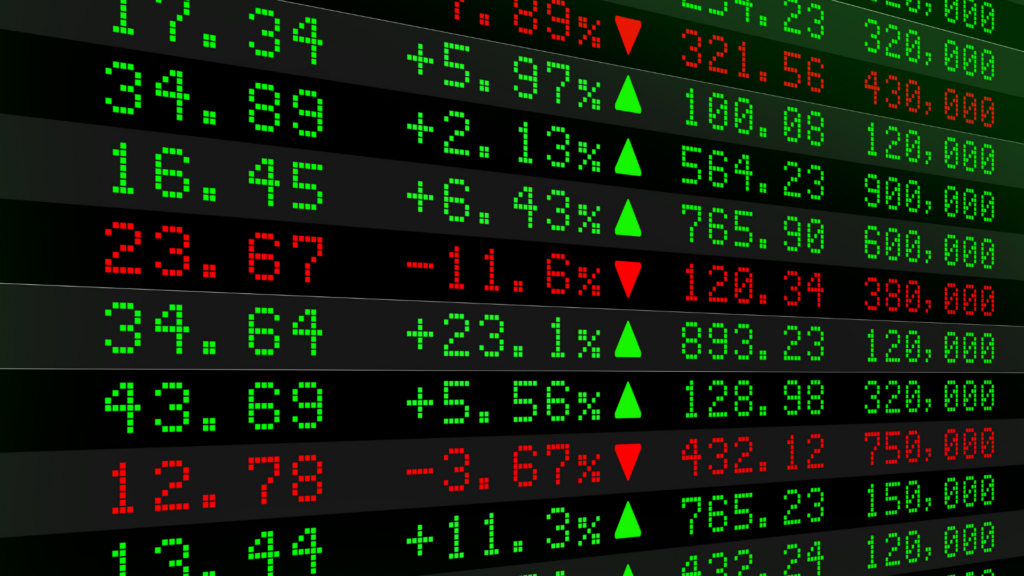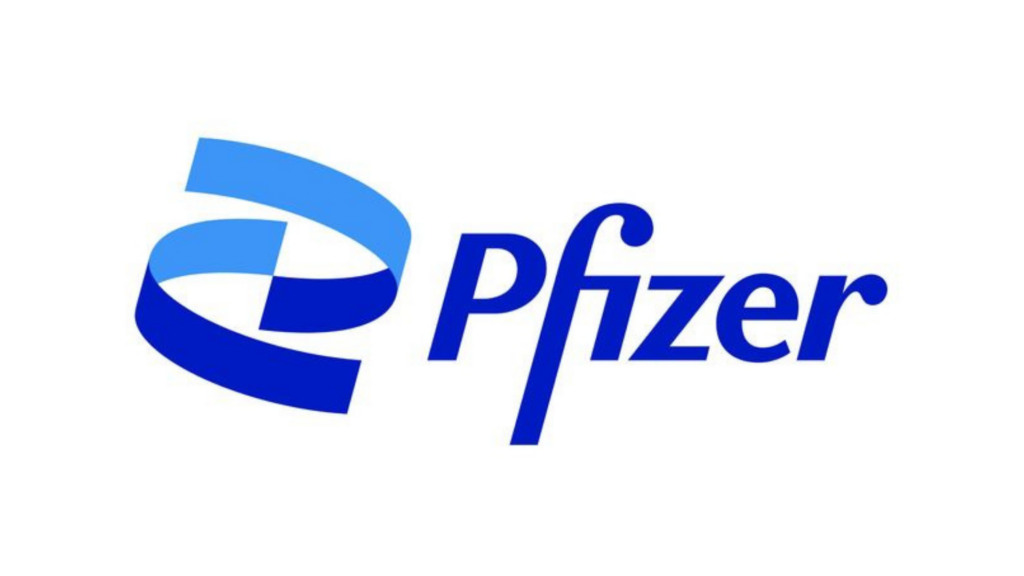Is It Too Late to Invest in Pfizer and Moderna?
Since the beginning of the pandemic, we’ve seen crazy returns (and some tough weeks) from biotech giants Pfizer and Moderna, both of which are known for producing COVID-19 vaccines, among other things.
While both companies have even more programs in the works to help in the fight against the coronavirus, some investors are wondering whether or not these future products are already priced in. So, is it too late to invest in Pfizer and Moderna?
Before we get started, I’d like to add that I am no medical expert! The opinions in this article are purely related to finance, and if you want to learn more about the medical side of things I recommend you visit the CDC website.
Let’s take a look.
What Does “Priced In” Mean?
If you’ve been a Wall Street Survivor for awhile now, you know that stocks (and other assets) are priced according to their future cash flow.
In order to find the present value of an asset, you take its future cash flows and use a specific discount rate to “discount” them, or find out what they’re worth today. Then, you add all of these discounted future cash flows up to find the value of the asset.
The only problem with using discounted cash flows to price stocks is that we don’t actually know the amount of the cash flows that the stock is going to produce in the future. We have to do research and make educated guesses as to how the company is going to perform in the coming years. This is not an easy thing to do, and financial professionals spend years learning how to make accurate valuations.
Generally, a consensus among financial analysts will determine the price that a company’s stock will gravitate towards.
For example, let’s say all of the financial analysts around the world did some financial modeling for Microsoft this week. Microsoft is currently trading at $295, but the analysts made educated guesses about Microsoft’s future cash flows and a majority of them determined that MSFT is undervalued by $5. After the analysts published their findings, you would see Microsoft’s stock price increase to $300 as investors rush to take advantage of this opportunity. If the analysts were right, then Microsoft’s stock price will remain at $300 when it reports earnings. If the analysts were wrong, then the stock’s price will increase or decrease after earnings are reported.

The point is that just because one of the companies in your portfolio does well, doesn’t necessarily mean its stock price is going to rise.
If you buy Apple stock right before an iPhone release because you think the new iPhone is going to do well, but you’re surprised to find that Apple’s stock price doesn’t rise after the iPhone does do well, you might have bought the stock after that future performance was already priced in. All of the financial analysts might have already guessed that the iPhone was going to do well, so Apple’s stock price had already risen to reflect that good future performance.
In order to generate excess returns on your stock investments, your stocks can’t just perform well; they have to perform better than expected. So if the whole world thinks a stock is going to perform well, that future performance is already priced in. The stock would have to perform even better than the world thinks in order for you to make a profit.
To find an undervalued stock, you have to disagree with its current price even after you take into account all of the future performance that’s already priced in.
So, this leads us to the point of this article: are biotech stocks’ upcoming endeavors already priced in, or is there a chance to make some money here?
Note: before you decide whether or not you want to add Pfizer and Moderna to your portfolio, you have to have a brokerage account! If you want to get started with commission-free trading (including fractional shares and cryptocurrency), I strongly recommend Robinhood.
Pfizer

If Pfizer (NYSE: PFE) wasn’t already a household name before COVID-19 vaccines became a relevant topic, it certainly is now. Pfizer’s COVID-19 vaccine was the first to gain emergency FDA approval, making it the leader in the fight against the coronavirus.
Clinical trials are often what determines sharp increases and decreases in a pharmaceutical company’s stock price. When a particular drug does well in clinical trials, the company’s stock will increase. If a drug gets shot down in trials, the stock will likely take a hit. The good news here is that Pfizer’s stock has been given quite a bit of fuel due to its coronavirus vaccine, reaching new highs in the last few months. The bad news is that there’s always time for a bad trial that could put a damper on the stock.
Analysts are currently rating Pfizer as both “buy” and “hold.” With booster shots and Delta variant protection on the table, Pfizer has an opportunity to make some big moves that could bolster its stock. And even if the stock doesn’t see any new COVID-19 developments, Pfizer has still established itself as a household name in pharmaceuticals and biotech, meaning it’s here to stay. This could be a good opportunity for a long-term investment lasting far beyond the pandemic.
Pfizer and Moderna are receiving tons of attention from investors around the world. Unfortunately, many U.S.-based brokerages don’t allow non-citizens to open accounts with them. If you live outside the United States, you should check out Interactive Brokers, our #1 recommended broker for international traders!
Moderna

Moderna (NASDAQ: MRNA) is the other name that most would think of when it comes to COVID-19 vaccines. Moderna’s shot is similar to Pfizer’s in terms of efficacy, and has been performing very well in terms of protection against infections and harsh side effects from coronavirus variants like the Delta variant.
While Moderna’s vaccine is performing its job quite well, that doesn’t necessarily mean that the company’s sales are plummeting as the number of Americans in need of the vaccine falls. In fact, Moderna has still been making moves as restrictions on vaccinations are peeled back. For example, Moderna has been making deals to ship its shots to other countries in South America and Europe, and sales will likely be supported by younger patients as they receive permission to get vaccinated.
And much like Pfizer, Moderna isn’t necessarily going to be in trouble once the demand COVID-19 vaccines falls off. It is currently working on over 10 products that could mean protection from or treatment for some of the viruses for which we still don’t have treatment. As these vaccines and other drugs go through clinical trials in the near and distant future, Moderna could see some big jumps (and drops) in its stock price.
Moderna is also currently seeing both “buy” and “hold” ratings from analysts.
Analysts’ opinions on stocks can be confusing and full of high-level finance jargon. If you want to see clear, easy-to-read opinions meant for the everyday investor, the Motley Fool is a great place to start. They also have a stock picking list called Stock Advisor that has beaten the market by almost 500% since its inception! You can also read our review of the Motley Fool here.
The Bottom Line

If you had invested in Pfizer and Moderna at the beginning of 2020, you would have made a huge return (especially with Moderna, which grew from around $20 per share to around $400). While those huge jumps in price might be behind us, that doesn’t mean that vaccine developments and possible gains from coronavirus-related treatment are off the table. With booster shots and the unfortunate development of new variants on the table, we still might see some returns on these stocks in the near future.
And even if Pfizer and Moderna don’t grow all that much more due to the pandemic, they’re both still huge players in the biotech game with more products on the way in the future. This could make for a great long-term investment opportunity!
We are experienced users of dozens of stock trading platforms. We stay up to date on these platforms' service offerings, subscription fees, trade commissions, and welcome bonuses. The brokerages listed below are for U.S.-based investors, and are ranked in order of overall value received after taking advantage of their sign-up and/or referral offers. ✅ U.S. stocks, ETFs, options, and cryptos $3 monthly sub 10k in assets Growth $3; + $9 Month Bronze $3; Silver $6; Gold $12 a monthThe Best U.S. Brokerages as of June 30, 2025
Ranking of Top U.S. Stock Brokerages Based on Fees, Features, and Sign-Up Bonuses
Rank
Brokerage
Fees
Features
Sign-Up Bonus
Read Our Review
1.

$0
✅ Now 23,000,000 users
✅ Cash management account and credit cardFree stock up to $200 with new account, plus up to $1,500 more in free stock from referrals
Robinhood Review
2.
Moomoo
$0
✅ Free Level 2 Nasdaq quotes for advanced traders
✅ Access to U.S. and Hong Kong markets
✅ Learning tools built in60 free stocks with $5k deposit; or 25 free stocks with $2k deposit
Moomoo Review
3.
Interactive Brokers
$0
✅ Access 150+ global stock exchanges
✅ IBKR Lite & Pro tiers for different experience levels
✅ SmartRouting™ and deep analytics for executionRefer a Friend and Get $200
Interactive Brokers Review
4.
M1 Finance
✅ Automated investing “Pies” with fractional shares
✅ Integrated banking & low-interest borrowing
✅ No trading fees with scheduled trades$75-$500 Tiered Sign-up bonus
M1 Finance Review
5.
Webull
$0
✅ Extended-hours trading premarket and after-hours
✅ Built-in technical charts, screeners, and indicators
✅ Commission-free options trading$10 and a 30-day complimentary subscription to Webull premium;
$200-$30,0000 Tiered Sign up bonusWebull Review
6.
Public
$0
✅ Fractional shares of U.S. stocks and ETFs
✅ No payment for order flow (PFOF) model
✅ “Alpha” tool with earnings calls and sentiment data$100-$10,000 Tiered Cash Account Transfer Bonus
Public Review
7.
Composer
$32 a month
✅ Invest in fully automated stock strategies
✅ Build custom strategies with our no-code builder
✅ IRAs$49 per successful referral with no limit on the number of referrals
Composer Review
8.
Stash
✅ Stock-Back® debit card rewards in fractional shares
✅ Auto-invest and budgeting tools for beginners
✅ Curated theme portfolios for retail investors$5 when you invest $5
Stash Review
9.
Acorns
✅ Automated investing portfolios
✅ ESG curated portfolios
✅ Retirement Accounts
✅ Acorns Early Invest for Kids' AccountsGet a $20 bonus when you start saving & investing
Acorns Review
10.
Etoro
$0
✅ CopyTrading™ feature to follow top traders
✅ Trade U.S. stocks, ETFs, and crypto in one app
✅ Commission-free trades with themed portfolios$10 Crypto Sign-Up Bonus
Etoro Review
11.
Robinhood Gold
$5
✅ 4% APY on cash
✅ 3% IRA match
✅ Level II data; Morningstar
✅ No interest on first $1,000 of margin Save with Annual Fee
Robinhood Gold Review
12.
Cash App
$0
✅ U.S. stocks and bitcoin; $1 minimum
✅ Peer-to-peer payments
✅ Beginner-friendly financial ecosystemUp to $200 in free overdraft coverage and earn 4% on cash
Cash App Review
Fees, features, sign-up bonuses, and referral bonuses are accurate as of May 31, 2025. All information listed above is subject to change.
